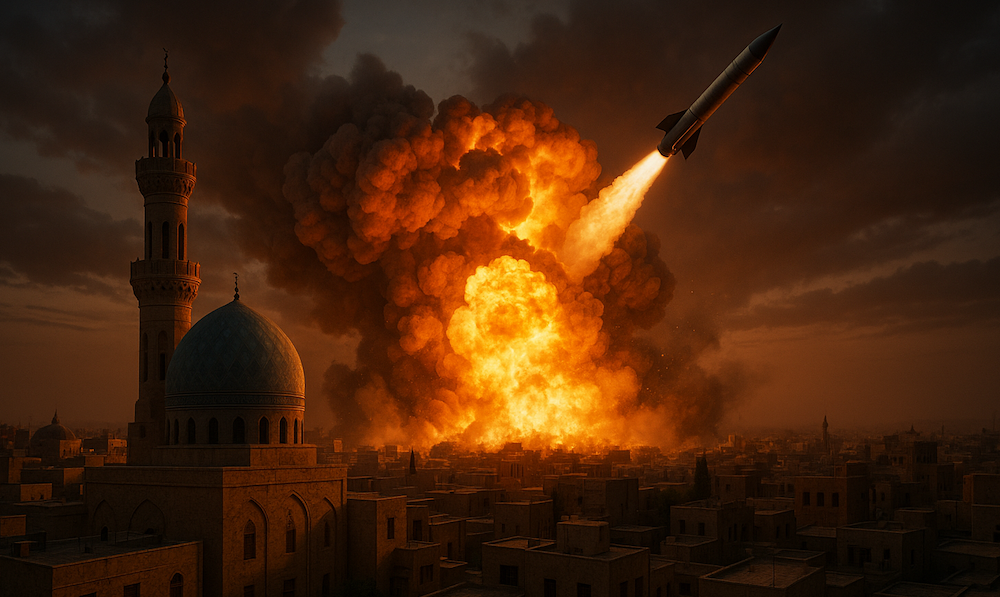
Posted June 23, 2025
By Sean Ring
Trump’s Iran Bombing: More Questions Than Answers
I’m still trying to figure out the endgame of Trump’s plan, if he has one. The Donald has opened up a can of worms I don’t think he sees coming yet, and it’ll blindside him come the mid-term elections.
I’ve divided this into 'Things We Know We Don’t Know' and 'Things We Know We Know.' Let’s get straight into it.
Things We Know We Don’t Know
Was Fordow destroyed in the bombing?
We know that the Fordow nuclear facility suffered severe damage from U.S. strikes, with satellite imagery showing multiple penetrations and significant surface disruption. However, both U.S. and Israeli officials, as well as independent analysts, caution that the site—buried deep under a mountain—may not be destroyed. Some equipment and uranium appear to have been relocated before the attack, and the underground chambers are too deep for current satellite technology to assess definitively. The consensus is that Fordow is likely crippled but not annihilated, and Iran could, in theory, reactivate parts of its program if enough infrastructure remains intact. If that’s the case, the mission was a total failure. Or was it? Was Trump just trying to hit Iran to shut the Israelis up, claim victory, and then high-tail it out of the Middle East?
How much danger are American troops stationed in the Middle East in?
Now that the U.S. has boldly entered the Israel-Iran drama, we must remind ourselves that over 40,000 U.S. troops and civilians are stationed across the Middle East, with the largest concentrations in Iraq, Kuwait, Qatar, Bahrain, and the UAE.
Those closest to Iran, especially in Iraq and Kuwait, would have only minutes’ warning in the event of a missile strike. Iran has demonstrated both the capability and willingness to target U.S. bases, as seen in the 2020 retaliation for Qassem Soleimani’s killing. U.S. military leaders are repositioning assets and enhancing defenses, but the risk remains acute, especially if the U.S. becomes more directly involved in hostilities.
When did this war become about regime change instead of getting rid of Iran’s nuclear weapons?
While the stated goal of U.S. and Israeli policy has long been to prevent Iran from acquiring nuclear weapons, rhetoric from key American and Israeli figures increasingly frames the conflict as a struggle against the Iranian regime itself. Senator Lindsey Graham and other hawks have openly called for “turning the page on the Ayatollah,” suggesting that only regime change can guarantee non-proliferation.
This shift is partly a response to skepticism that military strikes alone can permanently end Iran’s nuclear ambitions—some see regime change, as in getting a puppet regime seated in Tehran, as the only way to ensure compliance.
How will bombing Iran affect the Republicans’ mid-term election chances?
The Rude, backed by Just War Theory, doesn’t think preemptive strikes count as sufficient reasoning to kick off a conflict.
But Republican leadership has rallied behind President Trump’s decision to strike Iran, framing it as a necessary action to curb Tehran’s nuclear ambitions and bolster U.S. and Israeli security.
The political impact will hinge on subsequent developments: if the conflict escalates or American lives are lost, public opinion could turn, potentially harming Republican prospects. If the situation stabilizes and is seen as a strategic victory, Republicans may benefit.
Why would Russia talk about nations being willing to give Iran nuclear weapons?
How many times have I written that Russia and China will not let Iran go down because it’s too crucial to Russia’s International North-South Transport Corridor (INSTC) and China’s Belt and Road Initiative (BRI)?
In the wake of the U.S. strikes, former Russian President Dmitry Medvedev claimed that several countries, including Russia, would be willing to supply Iran with nuclear warheads if needed.
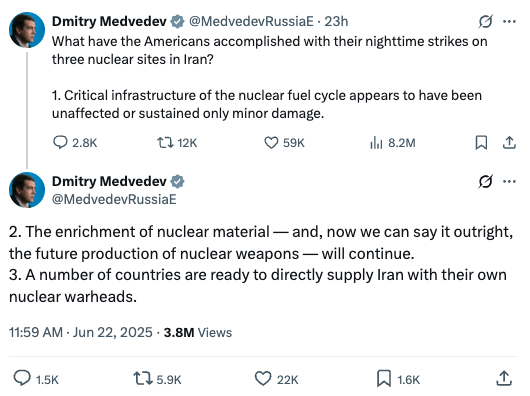
Credit: @MedvedevRussiaE
It also signals Moscow’s intent to leverage the crisis for diplomatic and strategic advantage, especially as Russia’s interests are threatened by shifting U.S. attention and alliances in the region.
If Iran wasn’t making nuclear weapons before, it is now. We can also safely say that the Nuclear Non-Proliferation Treaty (NPT) is effectively dead.
Why is Israel allowed to keep its nuclear arsenal secret and IAEA inspection-free, but the Iranians can’t?
Israel is widely believed to possess nuclear weapons but has never officially acknowledged its arsenal and is not a signatory to the Nuclear Non-Proliferation Treaty (NPT). This allows it to avoid international inspections and maintain strategic ambiguity.
By contrast, Iran is a signatory to the NPT and subject to IAEA oversight. The double standard complicates diplomatic efforts.
Critics argue that Israel’s exemption undermines the credibility of non-proliferation efforts, while supporters contend that Israel’s unique security situation justifies its policy.
The supporters’ argument will get tiresome after this episode.
Can Israel’s Iron Dome outlast Iran’s missile inventory?
We don’t know, but rumors abound that Israel’s running out of defensive missiles.
Israel’s missile defense is multi-layered: Iron Dome intercepts short-range rockets, while David’s Sling and Arrow systems target medium- and long-range missiles.
No missile defense is perfect—some missiles will get through, and sustained attacks could eventually deplete Israel’s interceptor stocks, especially if resupply is disrupted.
Things We Know We Know
Thomas Massie will embarrass Trump in the mid-term elections.
Representative Thomas Massie has filed a resolution to block U.S. strikes on Iran, joined by left-wing Democrats. This bipartisan pushback puts Trump in a politically awkward position.
Massie’s actions ensure that the debate over Iran will be a contentious issue in the mid-terms, potentially embarrassing Trump if the conflict becomes unpopular or costly. Heck, if Trump primaries the heck out of Massie and Massie still emerges as the victor, it’ll stain Trump’s record.
McCain, Kissinger, and Brzezinski are smiling from Hell. Haley, Bolton, and Graham are smiling on Earth... for now.
As Tom Woods is wont to say, “No matter who you vote for, you always get John McCain.”
With that said, Lord Bebo posted this and I nearly wet my pants:
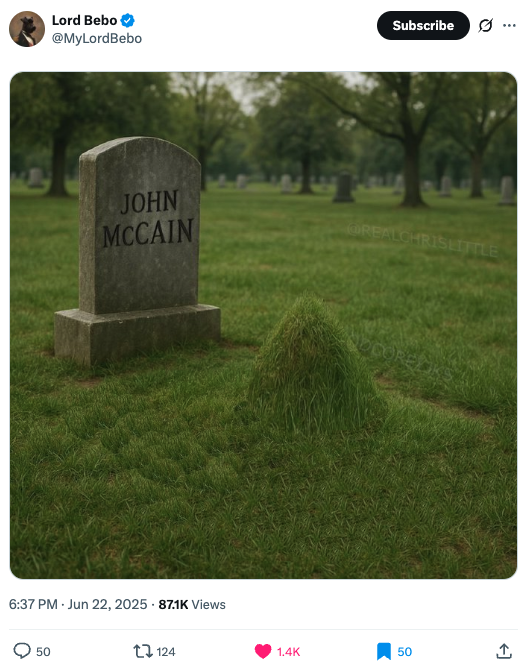
Credit: @MyLordBebo
Figures like McCain, Kissinger, and Brzezinski championed aggressive stances against adversaries like Iran. At the same time, living pundits and Senators such as Nikki Haley, John Bolton, and Lindsey Graham continue to advocate for robust military action.
The implication is that the cycle of escalation and intervention persists, with each generation of policymakers inheriting the same strategic dilemmas. But the neocons, neodems, and uniparty couldn’t be happier.
Oil isn’t pricing in a war.
Despite the dramatic escalation, oil markets have not yet fully priced in the risk of a broader Middle East conflict. Analysts had expected a spike in oil prices as the market opened, and they got it, but immediately, oil prices fell off a cliff.
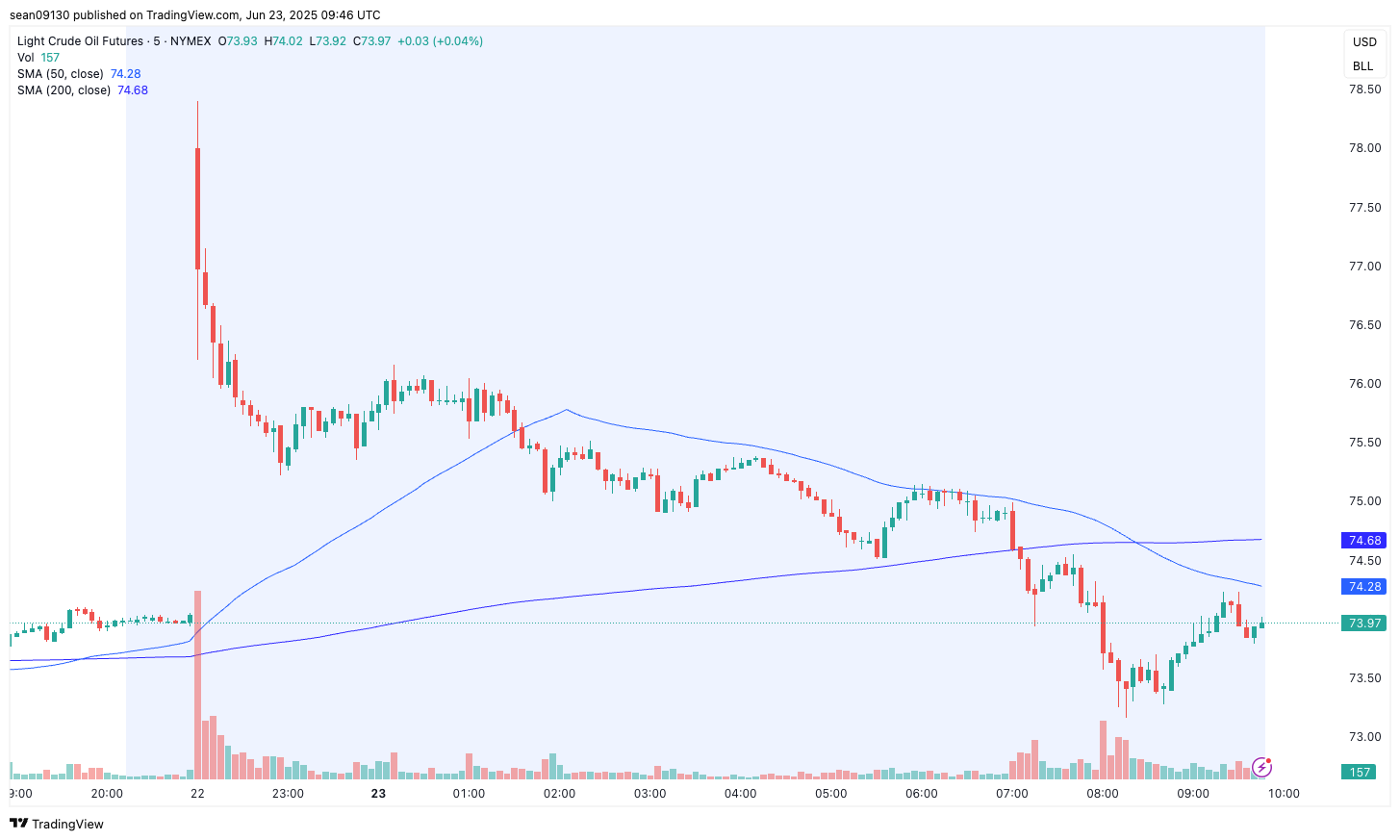
Oil topped out at $78.40 and is now trading at $73.97. Oil traders are betting that a war will be avoided… or at least the Strait of Hormuz will remain open.
Iran is now incentivized to build a nuclear weapon.
Before the strikes, IAEA and U.S. intelligence assessments indicated that Iran was not actively pursuing a nuclear weapon, though it had the technical capacity to do so.
The attacks have removed any ambiguity: with its facilities damaged and diplomatic options narrowing, Iran now has a clear incentive to seek a nuclear deterrent, both as leverage in future negotiations and as protection against further attacks.
Experts warn that only a regime change or a new, more intrusive agreement could prevent this outcome. Who pays the experts? No one knows.
Wrap Up
The U.S. bombing of Iran’s nuclear facilities has created more questions than answers.
While Fordow and other sites are likely crippled, not destroyed, the risk of escalation remains high, with American troops vulnerable and global markets on edge.
The political fallout in Washington is just beginning, and the strategic logic of the strikes—whether to deter nuclear development or force regime change—remains a topic of hot debate.
What is clear: the cycle of confrontation has entered a new, more dangerous phase, and the incentives for all sides to escalate, rather than compromise, are growing.
Despite all this, I wish you a great week ahead!
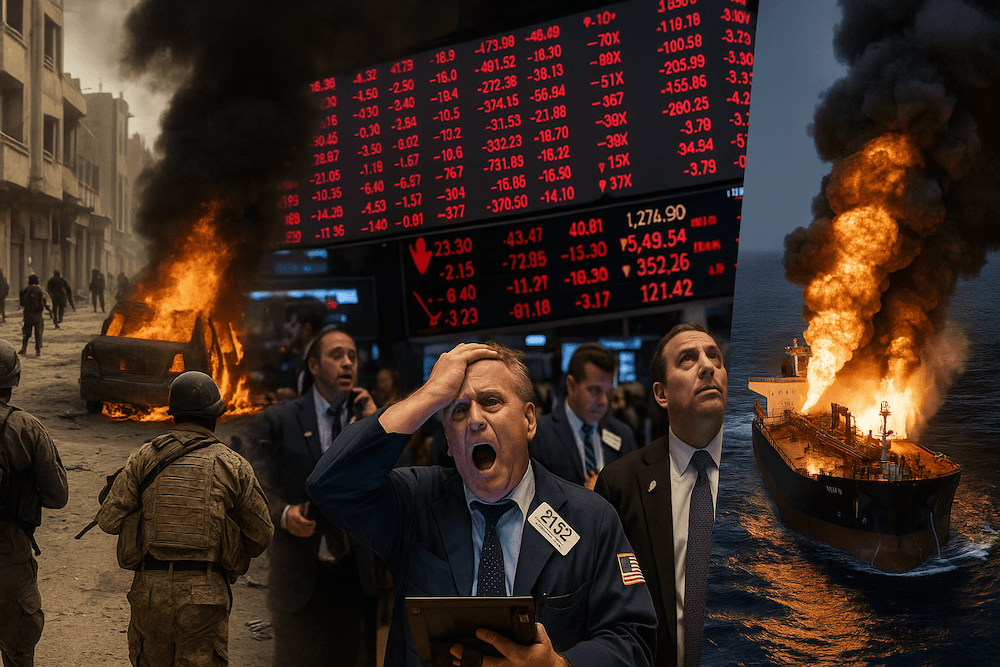
“You Better Get A Big Shovel!”
Posted June 26, 2025
By Sean Ring

مرحباً بكم في مدينة نيويورك!
Posted June 25, 2025
By Sean Ring

This Banker Keeps Hitting the Snooze Button
Posted June 19, 2025
By Sean Ring
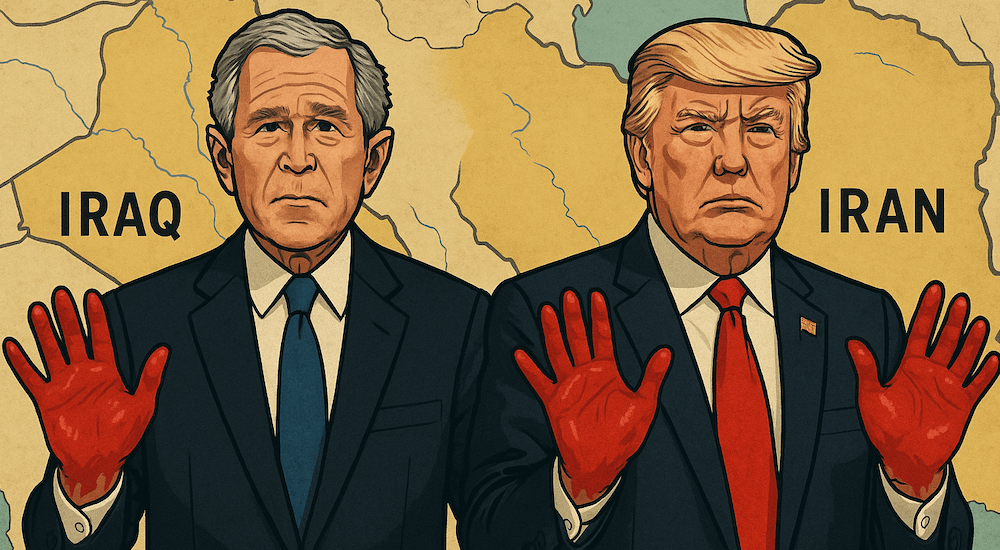
“We’ll Be Welcomed As Liberators!” and Other Nonsense
Posted June 18, 2025
By Sean Ring
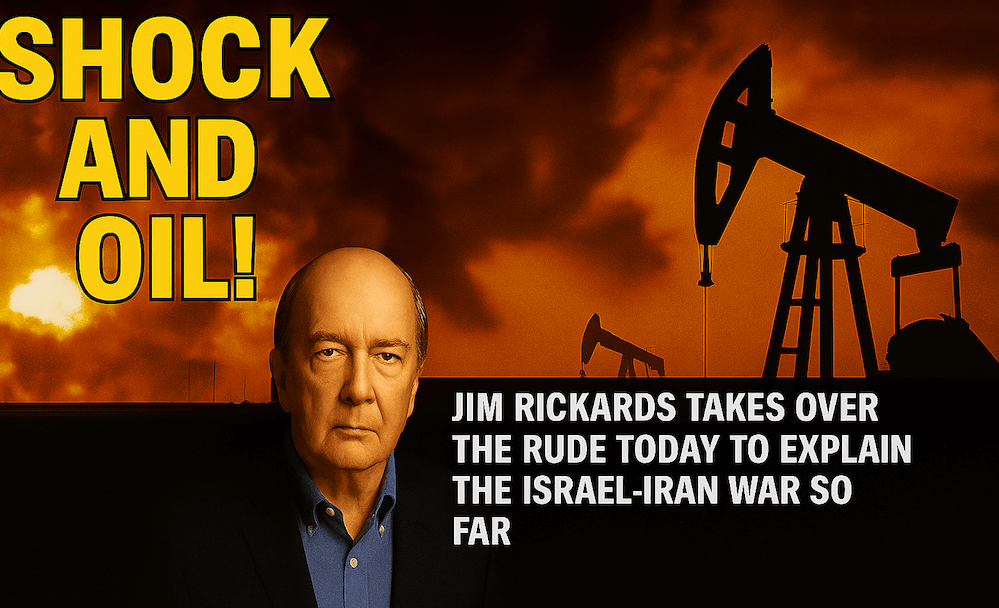
SHOCK AND OIL!
Posted June 17, 2025
By Jim Rickards

